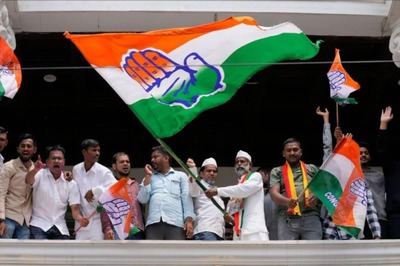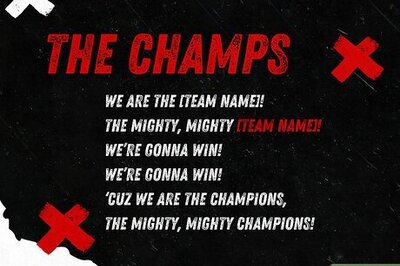
views
Dhaka: Bangladesh's Election Commission on Sunday allowed Jamaat-e-Islami, a crucial ally of jailed former prime minister Khaleda Zia's Opposition BNP, to contest the December 30 general elections, two months after it scraped the fundamentalist party's registration.
The Jamaat will contest from 25 seats in the parliamentary polls with 'sheaf of paddy', the electoral symbol of the BNP.
"The Commission does not have a legal option to cancel their (Jamaat leaders) candidacies. Their candidatures will, therefore, stay in place," EC secretary Helal Uddin Ahmed told reporters here.
The EC's decision came after the High Court earlier this week directed it to swiftly decide on a plea of 25 leaders of the unregistered party to contest the election as independent candidates on behalf of their alliance partners.
On October 29, the EC formally scrapped Jamaat's registration as a political party in compliance with an order of the Supreme Court.
A high court bench in 2013 declared Jamaat's registration with the EC illegal on a writ petition filed by several Islamic groups, saying the party's ideology was contrary to Bangladesh's Constitution.
The Supreme Court upheld the high court judgment when Jamaat challenged the verdict in the apex court.
The hardline Islamist party, however, is now in a dilapidated state with most of its senior leaders executed in the past five years after being convicted by special tribunals on 1971 war crimes charges.
Jamaat was opposed to Bangladesh's 1971 independence from West Pakistan and its leaders and workers sided with Pakistani troops in carrying out atrocities and genocide in then East Pakistan (now Bangladesh).
Bangladesh's post-independence government banned Jamaat but the subsequent regimes withdrew the ban allowing the party to re-emerge in politics.
The party became a crucial partner of Zia's BNP-led four-party alliance government in 2001 and its chief Moti-ur-Rahman Nizami and secretary general Ali Ahsan Mohammad Mujaheed became ministers.
The incumbent Awami League government assuming power after its victory in the 2008 elections and initiated a process to bring to justice the Bengali perpetrators of the 1971 war crimes.
Both Nizami and Mujaheed were sentenced to death along with several other party stalwarts by special courts.



















Comments
0 comment